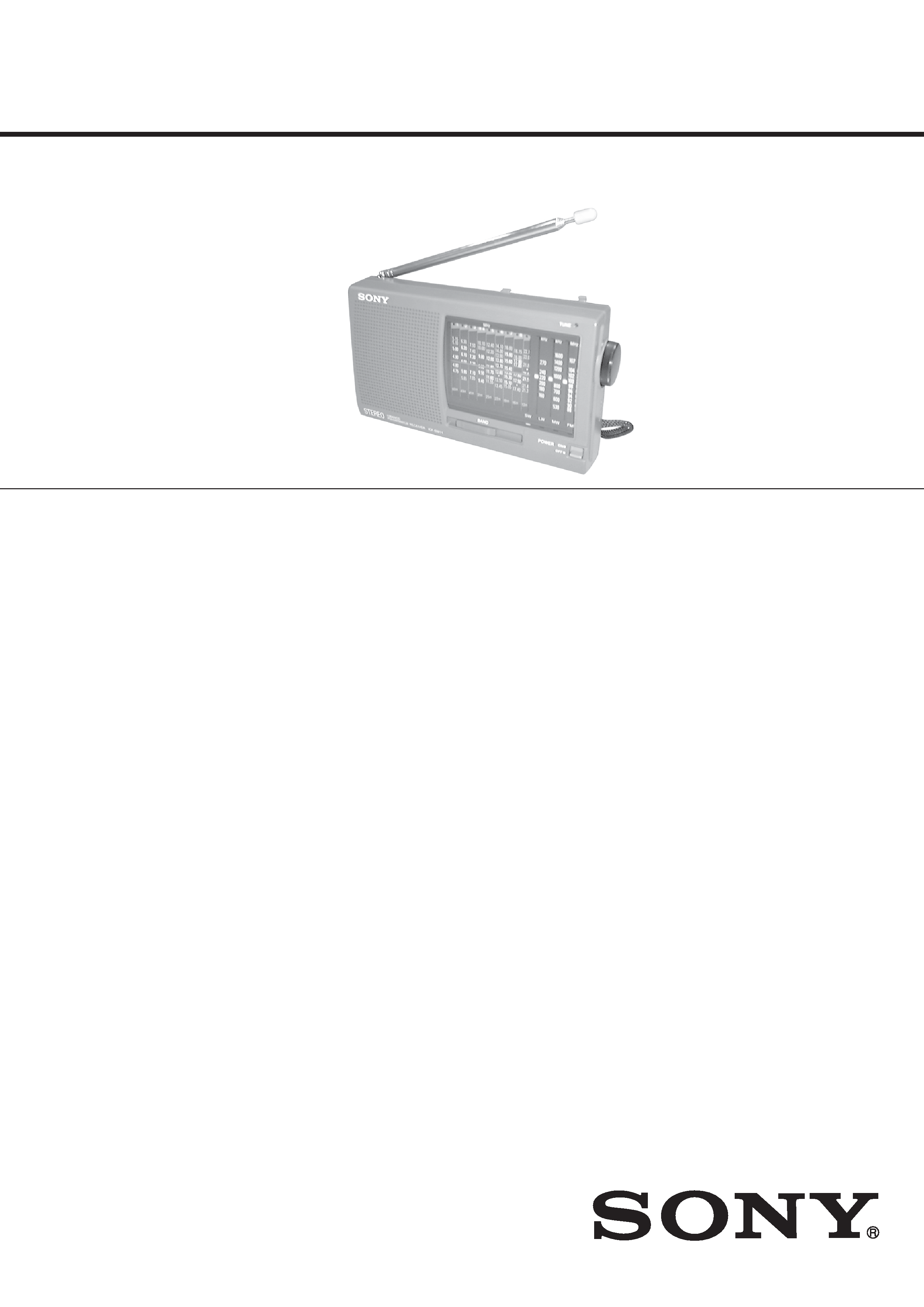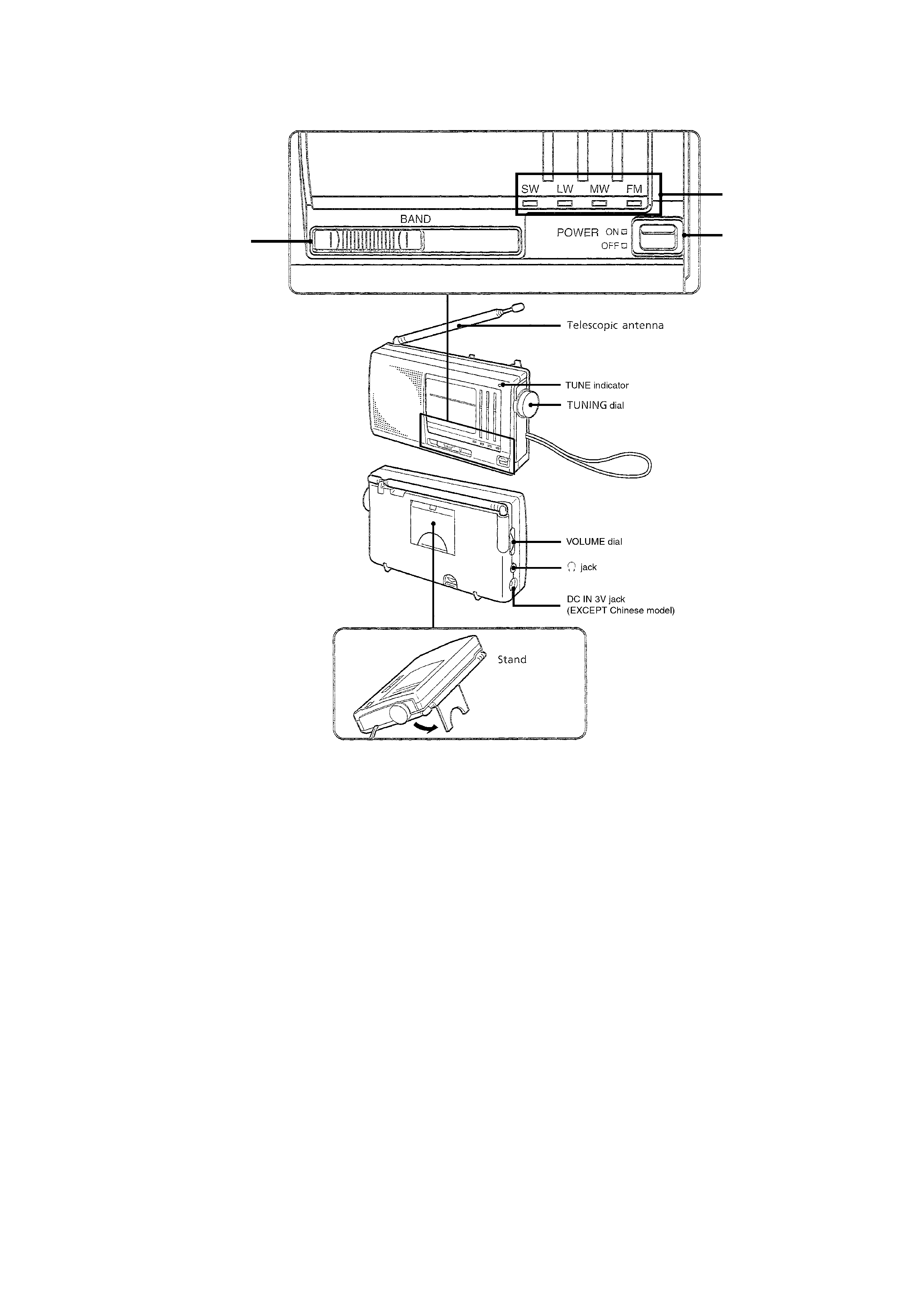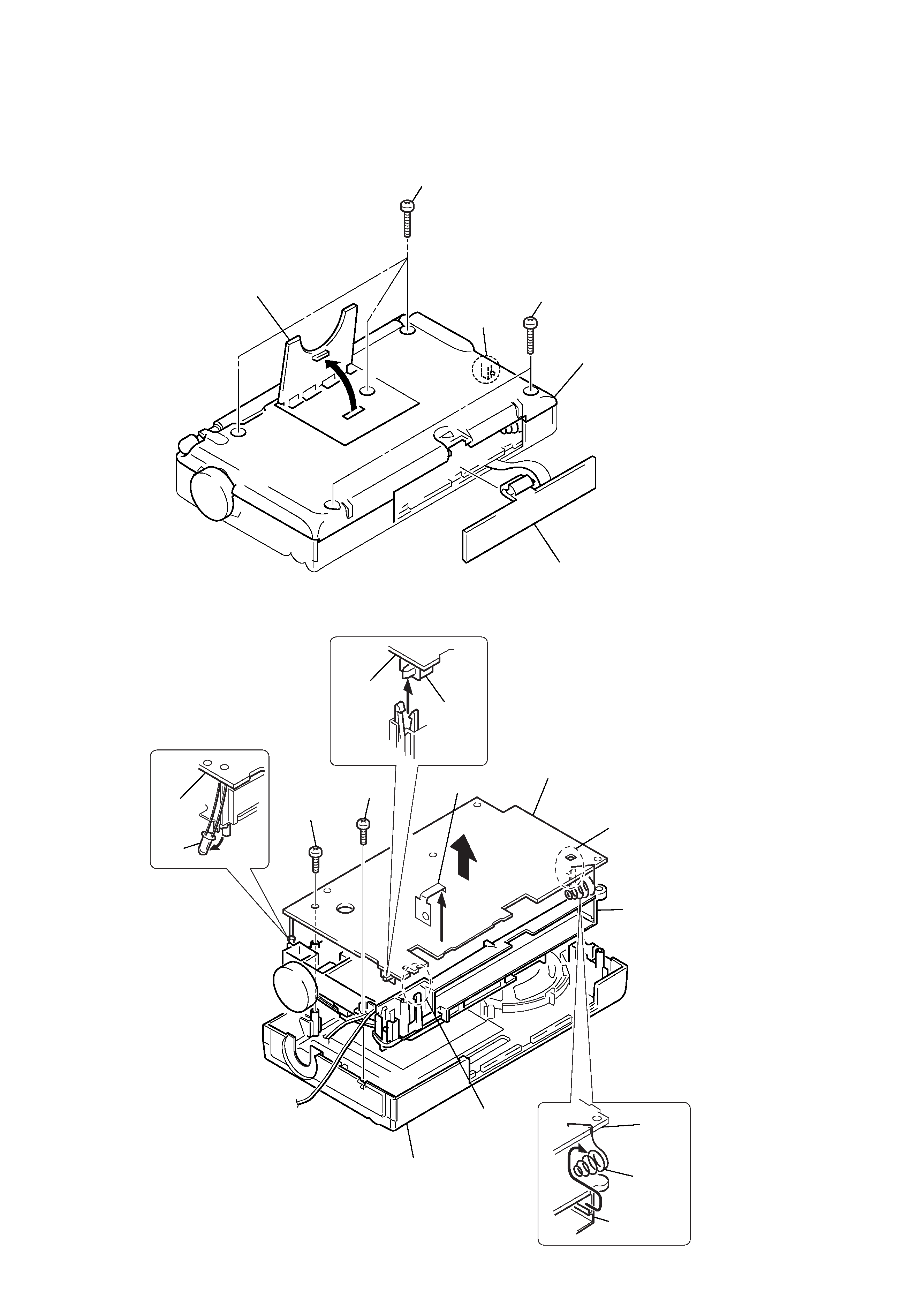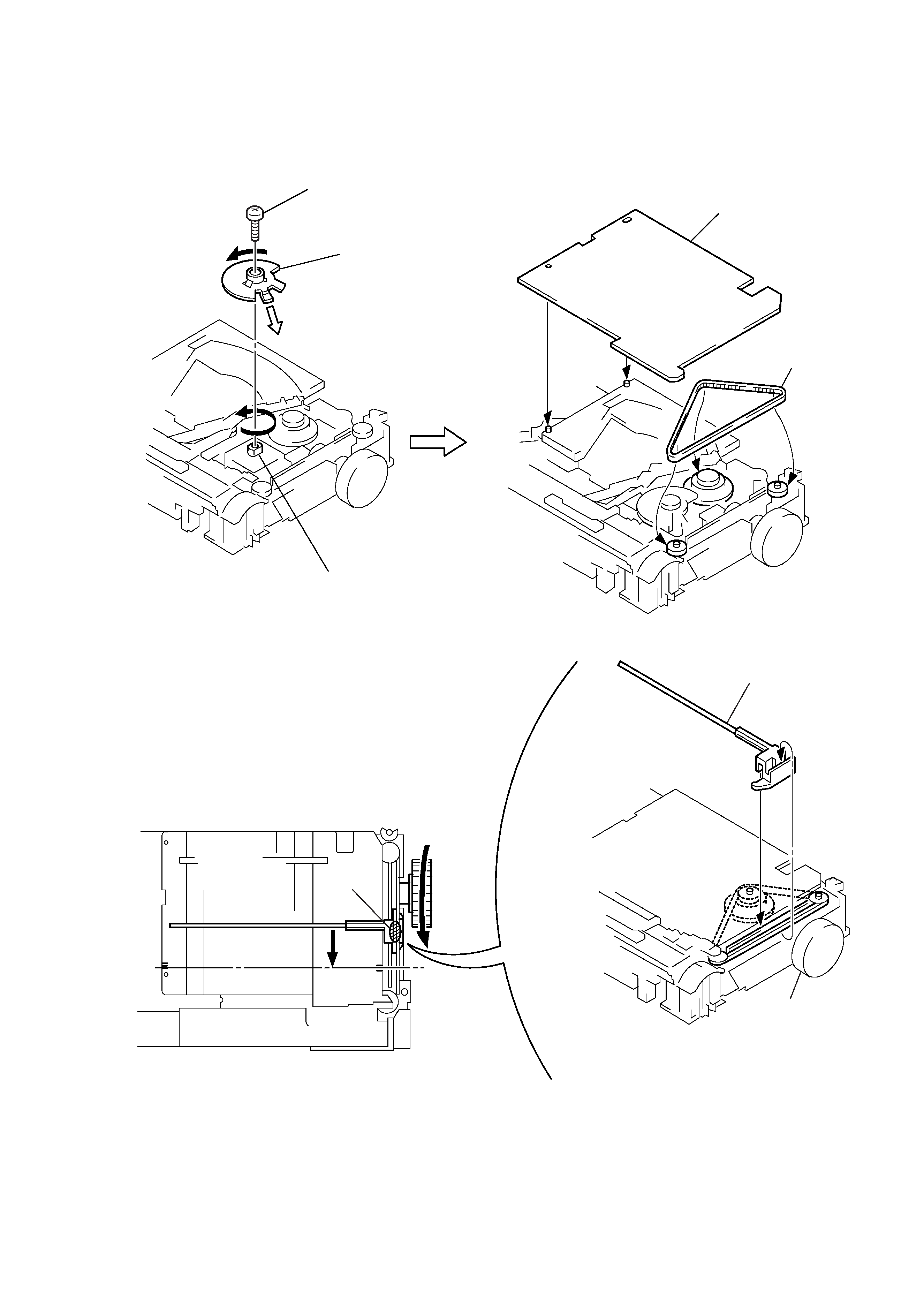
ICF-SW11
US Model
Canadian Model
AEP Model
E Model
Chinese Model
Tourist Model
SERVICE MANUAL
FM STEREO/SW1-9/
MW/LW 12 BAND RECEIVER
Sony Corporation
Personal Audio Company
Published by Sony Engineering Corporation
9-927-176-12
2001J1600-1
© 2001.10
Ver 1.1 2001. 10
SPECIFICATIONS
Frequency range:
FM:
87.5 108 MHz (Other models)
76 108 MHz (Tourist model)
SW1:
4.750 5.060 MHz (Other models)
3.850 4.050 MHz (Tourist model)
SW2:
5.900 6.200 MHz
SW3:
7.100 7.350 MHz
SW4:
9.400 9.990 MHz
SW5:
11.600 12.100 MHz
SW6:
13.570 13.870 MHz
SW7:
15.100 15.800 MHz
SW8:
17.480 17.900 MHz
SW9:
21.450 21.750 MHz
MW:
525 1620 MHz
LW:
141 290 kHz
Speaker
Approx. 5.7 cm (21/4 inches) dia., 4
Power output
140 mW (at 10 % harmonic distortion)
Ourput
Headphones jack (stereo minijack, 3.5 mm dia)
Power requirements
3 V DC, two R6 (size AA) batteries
DC IN 3V jack accepts : AC power adaptor
(Except chinese model)
AC-E30L, HG (not supplied)
Battery life
Approx. 30 hours with Sony SUM-3 (NS)
Dimensions
Approx. 162
× 93.8 × 34.8 mm(w/h/d)
(61/2
× 33/4 × 13/8 inches)
Mass
Approx. 340 g (12 oz) incl. batteries
Supplied accessory
Short wave guide (1)
Accessories not supplied
AC power adaptor
*AC-E3L, HG
LW/MW/SW wide range antenna AN-1, AN-102
*The voltage of power supply is different depending on the country .
Please buy an AC power adaptor in the country where the radio is
to be used.
Design and specifications are subject to change without notice.

-- 2 --
TABLE OF CONTENTS
1. GENERAL ·········································································· 3
2. DISASSEMBLY
2-1. Rear Cabinet ··································································· 4
2-2. Front Cabinet, Main Board ············································· 4
2-3. Dial Pointer Setting ························································· 5
3. ELECTRICAL ADJUSTMENT ···································· 6
4. DIAGRAMS
4-1. IC Block Diagram ··························································· 8
4-2. Printed Wiring Board ······················································ 9
4-3. Schematic Diagram ······················································· 11
5. EXPLODED VIEWS ······················································ 13
6. ELECTRICAL PARTS LIST ······································· 14

-- 3 --
SECTION 1
GENERAL
BAND
select switch
BAND
indicator
POWER
switch

-- 4 --
SECTION 2
DISASSEMBLY
Note :
Follow the disassembly procedure in the numerical order given.
2-1. REAR CABINET
2-2. FRONT CABINET, MAIN BOARD
2
Stand
3
Three screws
(P2.6
× 16)
4
Two screws
(P2.6
× 16)
5
Cabinet (rear)
(The cabinet is locked
by the claws)
1
Lid, battery case
Claw
2
Front Cabinet
5
6
Main chassis
Main
chassis
Claw
Claw
8
MAIN BOARD
4
Terminal, battery
7
Terminal
(Minus),
battery
D2
MAIN
board
MAIN
board
S2
MAIN
board
1
Screw
(P2
× 8)
3
Screw
(BTP2.6
× 8)

-- 5 --
2-3. DIAL POINTER SETTING
3
Screw
(1.7
× 3) Flat (+) special
2
Mach the hole with setting
the variable capacitor gear gap
in the arrow A direction.
1
Turn the variable capacitor
fully counterclockwise.
5
Scale, dial
4
Belt (Tun)
A
7
First, turn the tuning shaft fully in the arrow A direction.
Move only the dial pointer in the arrow B direction and
set it on the center of the scratched lines on the dial scale plate.
Apply suitable locking compound to C portion.
6
Pointer
Knob (Tun)
Center of
scratched line
A
C
B
